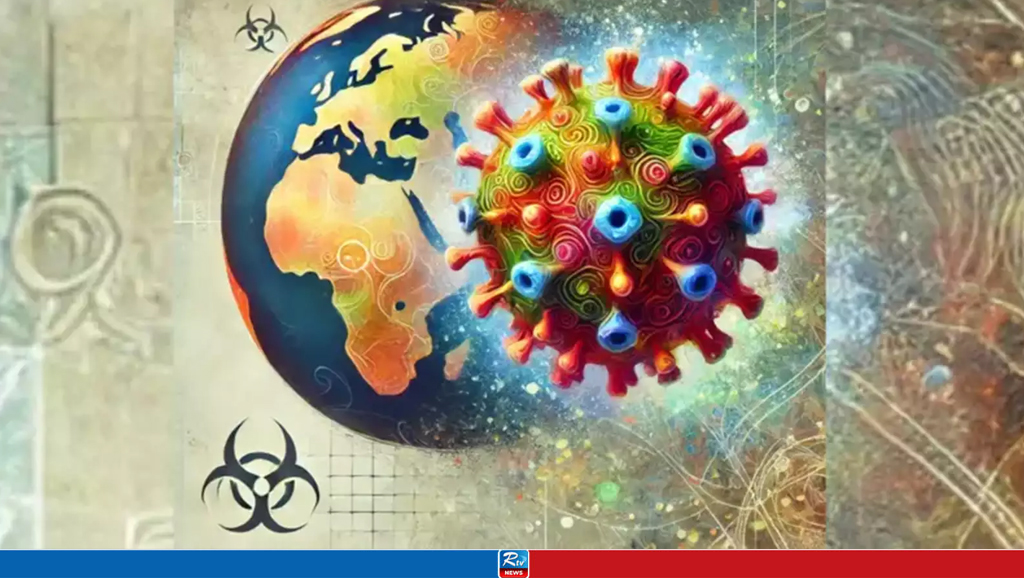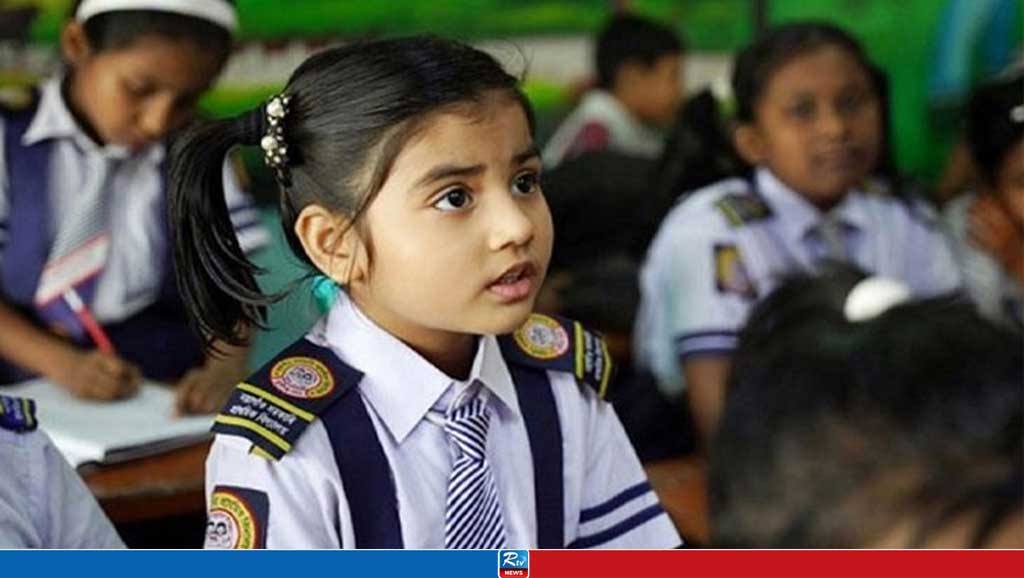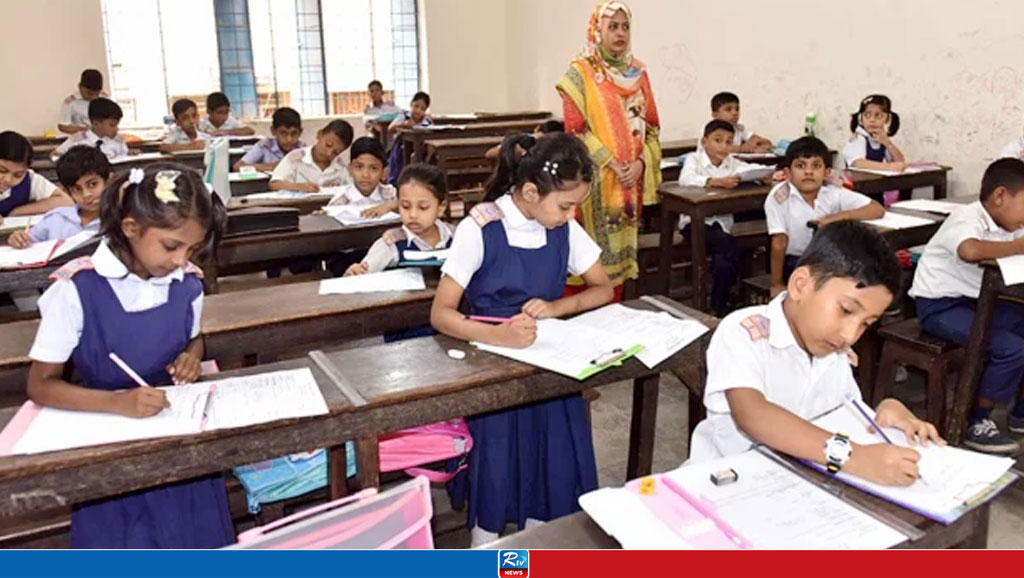18th teachers' registration preliminary result published, 479981 Passed

The results of the preliminary examination of the 18th teacher registration have been published. In this, 4 lakh 79 thousand 981 candidates have passed.
Non-government Teacher Registration and Certification Authority (NTRCA) published the results on Wednesday (May 15) night.
Among them, 29,516 students passed at the school-2 level, 2,21,652 at the school level and 2,28,813 at the college level.
Candidates can know the result through http://ntrca.teletalk.com.bd/result/ using their registration exam roll and batch number or from the link obtained by scanning the attached QR code. Moreover, the passed candidates will also be informed of the results through SMS from Teletalk.
Comments
AI is Trained to Spot Warning Signs of Ovarian Cancer and Pneumonia
A revolutionary blood test leveraging artificial intelligence (AI) has emerged as a game-changer in diagnosing deadly diseases like ovarian cancer and pneumonia at their earliest stages.
Developed by Dr. Daniel Heller and his team at New York’s Memorial Sloan Kettering Cancer Center, the test utilizes nanotube technology—carbon tubes 50,000 times thinner than a human hair—to detect molecular reactions in blood samples.
These nanotubes emit specific wavelengths of fluorescent light when certain molecules attach to them. The patterns are so intricate that only AI, through machine learning algorithms, can decode them. Dr. Heller explained, “It’s like identifying molecular fingerprints too subtle for humans to detect.”
Ovarian cancer, often diagnosed late, spreads quickly. Audrey Moran, head of the Ovarian Cancer Research Alliance (OCRA), stressed that early detection could significantly lower mortality rates.
The AI algorithm, trained on limited patient data, has already shown remarkable accuracy despite challenges in gathering sufficient samples for this rare cancer.
Beyond cancer, AI is also revolutionizing pneumonia diagnosis. California-based company Karius uses AI to identify pathogens within 24 hours, eliminating the need for multiple costly tests.
Researchers are optimistic about making this technology widely available within 3–5 years, heralding a new era in medical diagnostics and lifesaving innovations.

Rtv Marks 19 Years of Excellence, Steps Boldly into 20th Year
With the slogan “Today and Tomorrow,” satellite television channel Rtv launched on December 26, 2005, as the country’s fifth private TV channel. Nineteen years later, it proudly steps into its 20th year as a voice of the people.
Throughout its journey, Rtv has prioritized audience preferences in curating its news and programming, earning widespread love and support. With a commitment to an enriched future, the channel has consistently worked to fulfill viewers’ expectations, offering innovative shows, dramas, talk shows, reality programs, award ceremonies, and unique news content. This approach has made Rtv a leading choice among viewers. Alongside television, Rtv has also established itself as a top local channel on online platforms.
On this special occasion, artists, cultural figures, journalists, politicians, and renowned personalities from various fields extended their congratulations. Many also shared messages of goodwill on social media. The Rtv management expressed gratitude to its viewers, staff, and advertisers for their continued support over the years.
Rtv’s CEO, Syed Ashik Rahman, said, “On this milestone occasion, I extend my heartfelt thanks to our viewers at home and abroad, our staff, advertisers, and cable operators. It is through collective efforts that we’ve completed 19 years and stepped into our 20th. Rtv remains committed to catering to audience tastes and upholding responsibility towards public awareness, wholesome entertainment, and the unbiased flow of truthful information. We are dedicated to creating and broadcasting diverse programs for viewers of all ages and professions. As we enter the new year, we will present even more exciting offerings. I thank you once again for your continued support.”
Highlights and Achievements
Rtv’s unique programs, such as popular talk shows Goltable (Roundtable), Kemon Bangladesh Chai (What Kind of Bangladesh Do We Want), and Aaj Patrikay (In Today’s Newspaper), along with award events like Star Award, Alokito Nari Padak (Illuminated Women Award), and Rtv SMC Monimix Prerana Padak (Rtv SMC Monimix Inspiration Award), have elevated its status. Recently, the channel introduced new shows like Danish Rtv Young Star and Folk Station. Rtv has also created a platform for Islamic talent discovery and gained popularity with programs such as Gorbito Baba (Proud Father).
The channel’s autism-focused program Hat Barie Dilam, fashion and lifestyle show Lookme, and other innovative content have kept it in the spotlight year-round. Its special dramas and programs surrounding Eid and other cultural and religious occasions have also been widely appreciated.
Digital Presence
Rtv’s digital platforms have made a significant impact. With millions of readers, Rtv Online News uploads over 150 news articles daily, catering to domestic and international audiences. The Rtv Facebook page has surpassed 21 million followers, while its YouTube channels (Rtv Drama, Rtv Music, and others) remain highly popular across the nation.
With fresh aspirations and vibrant plans for the future, Rtv aims to shine brightly for years to come. Congratulations to all viewers and well-wishers on this momentous occasion!

NASA Probe Survives Record-breaking Close Approach to Sun
NASA scientists have announced that the Parker Solar Probe survived zooming by the sun at a record-breaking closest distance. The craft collected precious data which researchers say will aid work on solar wind, particles and the sun's atmosphere.
What we know about the mission
The mission was carried out by a team at the Johns Hopkins Applied Physics Laboratory in Maryland.
"The team was out of contact with the spacecraft during closest approach, which occurred on Dec. 24, with Parker Solar Probe zipping just 3.8 million miles from the solar surface while moving about 430,000 miles per hour," Michael Buckley, spokesperson for the laboratory, said in a statement.
On December 26, the team received a signal from the probe indicating that it is in "good health and operating normally."
Scientists expect detailed data from the NASA-developed spacecraft on January 1.
About the probe
The craft was built to endure temperatures up to 1,800 degrees Fahrenheit (about 980 degrees Celsius), enough to survive in the sun's outer atmosphere.
Launched in 2018, the probe's mission is to complete 24 orbits around the sun in seven years.
The close approach to the sun allowed the probe to collect measurements that will help scientists study how the sun's outer atmosphere gets "heated to millions of degrees," trace the flow of energy and discover how solar wind accelerates to near light speed.
Previous solar probes have helped researchers to understand the structures of solar wind and to map out the structure of the sun's atmosphere.

HMPV Virus: A New Pandemic Threat?
Following the COVID-19 pandemic, the Human Metapneumovirus (HMPV) has seen a surge in outbreaks in China and Japan. This flu-like virus has already infected many, with medical professionals and public health experts warning it could escalate to a crisis similar to COVID-19.
Experts fear a new pandemic could emerge as early as 2025. While no specific disease has been identified as the next global threat, the growing prevalence of HMPV is raising concerns.
Reports and social media posts reveal overcrowded hospitals in China, with claims that multiple viruses, including HMPV, Influenza A, Mycoplasma pneumonia, and even COVID-19, are on the rise.
What is HMPV, and What Are Its Symptoms?
HMPV symptoms resemble those of the flu and other respiratory infections, particularly affecting children and immunocompromised individuals. Common symptoms include:
Cough
Fever
Nasal congestion
Shortness of breath
The incubation period for HMPV is typically 3–6 days, with symptoms varying in duration depending on the severity of the infection. While it may begin with mild cold-like symptoms, severe cases can lead to hospitalization due to bronchitis, pneumonia, asthma exacerbations, or ear infections.
How Does HMPV Spread?
HMPV spreads in ways similar to other respiratory viruses:
Respiratory droplets from coughing or sneezing.
Direct physical contact, such as handshakes or touching infected surfaces.
Touching the face (mouth, nose, or eyes) after contact with contaminated areas.
Prevention and Protection
Although HMPV was first identified nearly two decades ago, no vaccine has been developed to date. Doctors suggest that preventive measures used against COVID-19 can also be effective in managing HMPV:
Washing hands with soap and water for at least 20 seconds.
Avoiding touching the face with unclean hands.
Maintaining a safe distance from infected individuals.
Adhering to these measures can help reduce the risk of infection and keep the virus at bay.

Meta to Suspend Fact-Checking Amid Allegations of Bias
Meta CEO Mark Zuckerberg on Tuesday said the social media company is ending its fact-checking program and replacing it with a community-driven system similar to that of Elon Musk's X.
Zuckerberg cited the outcome of the 2024 U.S. presidential election as underlying the decision, calling it a "cultural tipping point towards, once again, prioritizing speech." Zuckerberg made the announcement in a video. "We're going to get rid of fact-checkers and replace them with community notes similar to X, starting in the U.S."
The changes will impact Meta platforms Facebook and Instagram — which have billions of users — as well as Threads.
The systems put in place to moderate its platforms make too many mistakes, Zuckerberg stated.
Meta introduced its fact-checking program in 2016 as part of an effort to curb misinformation. The initiative was launched in response to criticism over Facebook's role in spreading false claims during the 2016 U.S. presidential election. A 2023 statement from Meta said the fact-checking program had "expanded to include nearly 100 organizations working in more than 60 languages globally."
Community trust
Meta does plan to continue to moderate content related to drugs, terrorism, child exploitation, frauds and scams, Joel Kaplan, Meta's chief global affairs officer and Clegg's successor, wrote in a statement on the Meta site. Facebook's trust and safety content moderation team is also moving from California to Texas and other U.S. locations, according to the note.
Kaplan also said entrusting users to effectively moderate Meta's social media platforms should benefit its content.
"We've seen this approach work on X — where they empower their community to decide when posts are potentially misleading and need more context, and people across a diverse range of perspectives decide what sort of context is helpful for other users to see," he wrote. "We think this could be a better way of achieving our original intention of providing people with information about what they're seeing — and one that's less prone to bias."
Meta said it would roll out its Community Notes approach over the next two month and continue refining it over the rest of the year. That will include no longer demoting content that users have fact-checked and including what Kaplan called "a much less obtrusive label" pointing people to additional information.
Preparing for Trump
The announcement came a day after Meta said former Ultimate Fighting Championship chief executive Dana White, a close ally of President-elect Donald Trump, would join its board, and shortly after former UK deputy prime minister Nick Clegg announced he was stepping down as president of global affairs.
Musk, a major supporter and financial backer of Trump during his presidential campaign, is thought to have the ear of the president-elect on issues ranging from how to slash federal spending to transportation policy.
Since Trump's November victory at the polls over Kamala Harris, Meta and other major technology companies have also sought to engender goodwill with the incoming administration. In December, for example, Meta donated $1 million to Trump's inaugural fund, while Zuckerberg dined with him at his Mar-a-Lago estate.
Such gestures seemed aimed at repairing Meta's relations with Trump, which soured after Facebook banned him from Facebook following the Jan. 6 attack on the U.S. Capitol in 2021, when the company ruled that his posts on the platform had helped foster the violence that day.
"Meta is repositioning the company for the incoming Trump administration," Jasmine Enberg, principal analyst at research firm Emarketer, said in an email. "The move will elate conservatives, who've often criticized Meta for censoring speech, but it will spook many liberals and advertisers, showing just how far Zuckerberg is willing to go to win Trump's approval."
(Source: CBS News)

Diamond-made Battery to Last for a Thousand Years on a Single Charge
In a groundbreaking achievement, scientists have developed the world's first diamond battery, capable of lasting an astonishing thousand years on a single charge. This innovative breakthrough, which has the potential to reshape the future of technology, was created by researchers from the UK Atomic Energy Authority (UKAEA) and the University of Bristol.
The battery is made using Carbon-14, a radioactive isotope, and is known as Diamond Battery. It operates similarly to solar panels but instead of harnessing light, it converts electrons from the decay of Carbon-14 into electricity.
What makes this battery truly remarkable is not just its longevity, but its safety and versatility. It is suitable for a wide range of applications, including smartphones, household appliances, and critical medical devices like pacemakers, hearing aids, and eye implants. Patients would greatly benefit from this technology, as the battery would last the entire lifetime of the device without requiring replacement.
The implications for space exploration are equally significant. Unlike traditional batteries that fail in extreme conditions, the diamond battery can endure harsh environments, making it ideal for powering spacecraft, satellites, and scientific payloads for decades—or even centuries. A single charge could potentially sustain space missions for hundreds of years.
Despite its potential, questions regarding the cost of production remain. While experts are optimistic that advances in manufacturing will drive down prices, the current cost of such a high-tech battery may limit its accessibility to the general public.
Another impressive feature of the diamond battery is its environmental safety. Although it uses Carbon-14, the radioactive isotope is safely encased in artificial diamonds, posing no risk to the environment or users.
Researchers believe that this revolutionary battery technology could not only transform the energy sector but also offer solutions to many complex challenges in various fields. As production scales, diamond batteries could become a key player in the future of energy and technology.

Meta to Lay Off 5% of Employees in Efficiency Drive
Tech giant Meta announced plans to lay off about 3,600 employees based on their performance, US media reported on Tuesday.
This will affect 5% of the company's 72,000-strong workforce, said the company to AFP news agency.
"I've decided to raise the bar on performance management and move out low-performers faster," CEO Mark Zuckerberg said.
Recent changes at Meta
Meta, which owns Facebook, Instagram and Whatsapp wants to ensure they have the "strongest talent" and "bring new people in," said Zuckerberg.
According to the plan, employees who underperform will be asked to leave sooner, and will be replaced by new hires, reported Bloomberg and tech blog The Verge.
Zuckerberg, 40, is the third richest person in the world. He has recently aligned closer to US president-elect Donald Trump.
Recently, Meta announced the shutdown of its US fact-checking program and scaled back its diversity and inclusion initiatives. It also made its content moderation rules more lenient.
Cost-cutting amid losses
Zuckerberg changed his company Facebook's name to Meta in 2021 after an ambitious plan to develop an immersive virtual reality experience, or 'metaverse.'
However, Reality Labs, Meta's virtual and augmented reality branch, has been making losses.
This is not the first time the company has seen layoffs. After seeing initial growth during the COVID-19 pandemic, Meta cut some 20,000 jobs.
Meta laid off the large number of employees in a cost-cutting move in 2023, which was declared as its "year of efficiency."


 Live Tv
Live Tv




